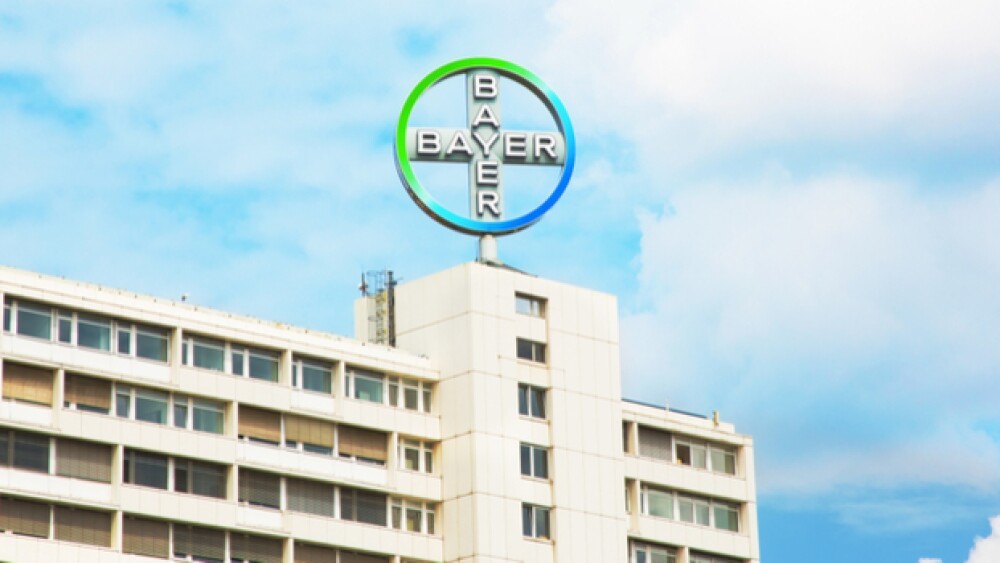A prostate cancer drug jointly developed by healthcare giant Bayer and Finland-based Orion can slow the spread of the disease, according to late-stage study results announced early Wednesday.
LIMUKK555 / Shutterstock.com
A prostate cancer drug jointly developed by healthcare giant Bayer and Finland-based Orion can slow the spread of the disease, according to late-stage study results announced early Wednesday. The data set up potential regulatory approval for the therapy.
Late Monday, the two companies announced results from the Phase III ARAMIS trial that showed darolutamide, a novel oral androgen receptor antagonist, “significantly extended” metastasis-free survival in patients with non-metastatic castration-resistant prostate cancer (nmCRPC). The companies did not share much of the study results in the announcement, only noting that the primary endpoint was met. Full data from the ARAMIS trial will be presented at an upcoming scientific meeting, the companies said. Bayer noted that it intends to discuss the data with regulatory agencies regarding submission for regulatory approval. The two companies added that the safety profile and the tolerability of darolutamide in the Phase III trial remained consistent with previously published information.
The Phase III ARAMIS trial evaluated the efficacy and safety of darolutamide in patients with non-metastatic castration-resistant prostate cancer who are currently being treated with androgen deprivation therapy (ADT) as a standard of care and are at risk of developing metastatic disease. Patients participating in the trial received either 600 mg of darolutamide or matching placebo twice a day. The primary endpoint, which was metastasis-free survival, defined as the time between randomization and evidence of metastasis or death from any cause, was met, the companies said.
“While conventional hormone therapy is effective in the treatment of non-metastatic cancer, the efficacy is often eventually lost as the sole form of treatment. Additional treatment options in the early stages of the cancer that delay the time to metastases with a manageable safety profile are long awaited. They are significant for the patient’s overall well-being,” Christer Nordstedt, head of research and development at Orion, said in a statement.
Bayer and Orion initially teamed up on the development of darolutamide in 2014. The German healthcare giant provided Orion with $68 million in upfront funds. Under terms of the deal, Bayer will be able to market the product globally, while Orion has the option to co-promote darolutamide in Europe. Orion is eligible to receive substantial royalties on the product sales, should darolutamide be approved by regulatory agencies. Orion will manufacture the product for global markets, the company added.
Prostate cancer is the second most commonly diagnosed malignancy in men worldwide. Approximately 70 percent of patients have the non-metastatic form of the disease. Darolutamide has been granted Fast Track Designation by the U.S. Food and Drug Administration (FDA) for nmCRPC.
In addition to the ARAMIS trial, Orion and Bayer are conducting the ongoing Phase III ARASENS trial that evaluates the safety and efficacy of darolutamide in patients with metastatic hormone-sensitive prostate cancer (mHSPC). That trial is expected to be completed in 2022. There are no separate milestone payments related to the ARASENS trial, Orion said.





